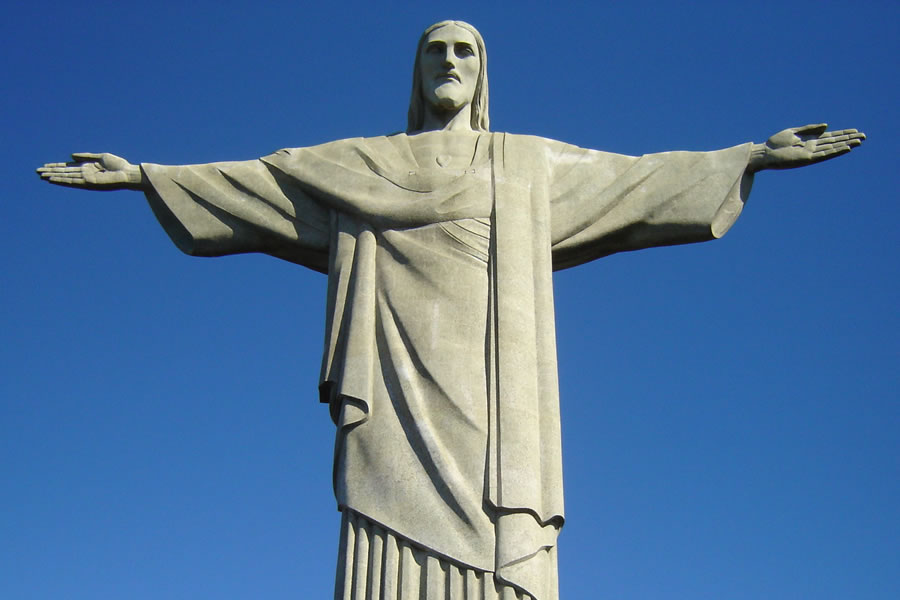
Fourth Sunday in Ordinary Time: Thunderbolts and Lightning
01/28/2024 | Gospel ReflectionOne of the most difficult duties of a disciple is to follow the command of Jesus to spread the gospel to all nations. (Lk 24:47, Mk 116:15, Mt 28:19) I think one reason may be that we don’t feel we have the authority to tell someone else what to believe. Most of us don’t think we know the gospel well enough to preach it. Or we are so afraid of offending atheists, that we use that fear as an excuse to say nothing. But being a disciple means following Jesus.
ContinueWhy does Eucharistic Prayer II say “like the dewfall?” Why do some priests omit it?
01/28/2024 | Why do we do that?This phrase comes in the context of the epiclesis, which is the part of the Eucharistic Prayer which calls down the Holy Spirit to initiate the process of transubstantiation – that is, transforming the simple gifts of bread and wine into the body and blood of Christ. The line in the revised Missal reads as follows: “You are indeed Holy, O Lord, the fount of all holiness. Make holy, therefore, these gifts, we pray, by sending down your Spirit upon them like the dewfall, so that they may become for us the body and blood of our Lord, Jesus Christ.” Here, the word dewfall is a translation for the Latin rore, which means “dew” or “light rainfall.”
Continue
To Answer The Call
by Kate Taliaferro | 01/21/2024 | Gospel ReflectionSomething very profound is going on in this brief passage about the call of the first apostles. Jesus calls, they follow. It’s a pretty simple cause and effect scenario. Yet, you and I both know that following Jesus is anything but simple these days…right? Or could it be that this passage is the perfect model for just how radical it is to follow Jesus?
Continue
Nostaligic Moments
by Alexis Dallara-Marsh | 01/14/2024 | Gospel ReflectionDon't you enjoy the nostalgia of pleasant memories, such as the beginning of a beautiful friendship?
How wonderful it is to relive the moment when Jesus called His first followers. I love to envision the sheer excitement and camaraderie that must have existed among those He called. An endless jubilee, God uniting with those He loves, ordinary human beings, you and me.
Continue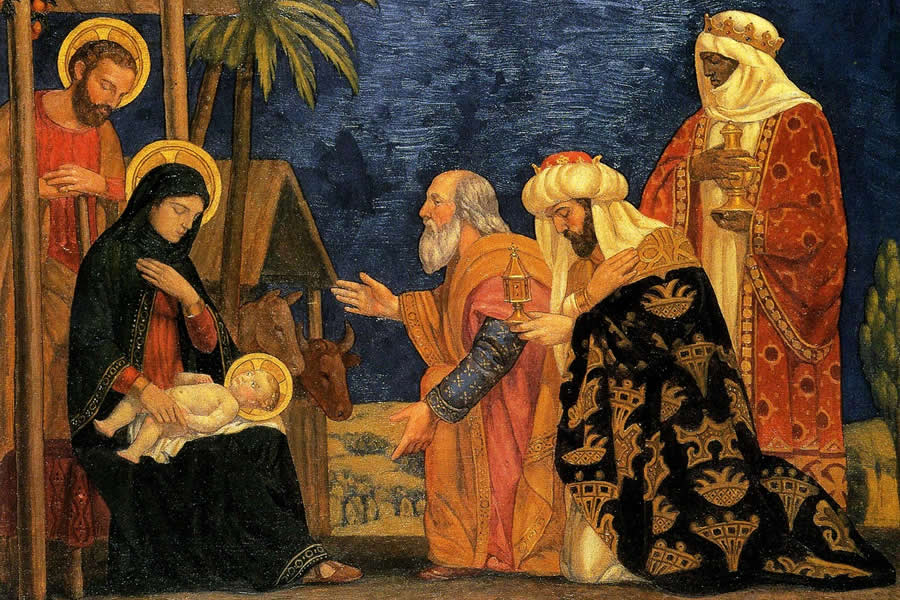
Reflections on Stewardship
by Tommy Shultz | 01/07/2024 | Gospel ReflectionThe Church is very strategic in its placement of the readings throughout the year. Today's second reading is a perfect example of this when Paul talks about stewardship. It's no surprise that we hear about this on the Feast of the Epiphany when we commemorate the magi finding the baby Jesus and bringing him gifts of Gold, Frankincense, and Myrrh. I always thought this was funny because these seem like terrible gifts for a little baby, but maybe this whole story is meant to show us more about what to do with gifts as opposed to what the actual gifts are.
Continue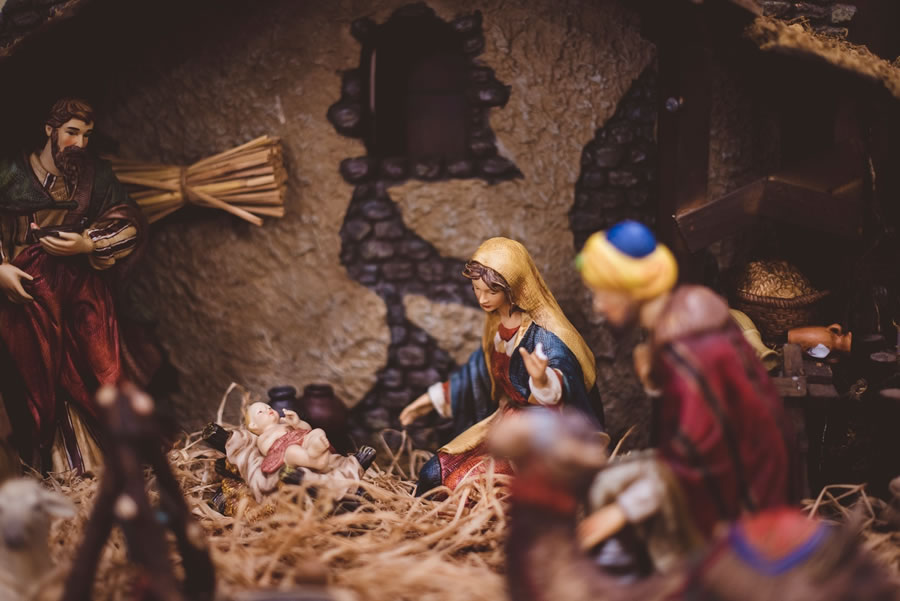
Let Our Adoration Never Cease
by Sister Kathryn James | 12/24/2023 | Gospel ReflectionI can remember cherished moments as a child turning the living room lights low on Christmas eve and sitting with a cup of hot chocolate before the nativity scene. I loved singing Christmas carols on that blessed evening, uniting myself in spirit to the angels who announced the birth of Christ to the shepherds over 2000 years ago. It was a magical moment for a child.
Continue
Gaudete Sunday
by Beth Price | 12/17/2023 | Gospel ReflectionRejoicing is the theme of today’s readings on this Gaudete Sunday. We are filled with joy, because the Lord is coming and is almost here! “God is the joy of my soul,” the prophet Isaiah says in the first reading. He truly is my joy, my God, my all.
ContinueWhat are the “O Antiphons?” Where do they come from?
12/17/2023 | Why do we do that?The Liturgy of the Hours is an ancient form of prayer, prayed by priests, monks, nuns, and lay people all around the world. The Liturgy of the Hours is composed in a four week cycle, with prayers at multiple times of day. The most commonly prayed part of the Liturgy of the Hours are Morning Prayer and Evening Prayer. Over the course of the four weeks, all 150 psalms are read, and many other prayers and pieces of scripture are included. As you might imagine, praying the same words in the same order, week after week, year after year, may begin to grow repetitive and a maybe a little bland, which is why any changes stand out.
ContinueWhy is the third Sunday of Advent called “Gaudete?” And why is it pink?
12/10/2023 | Why do we do that?In the Roman Missal, there are lines of scripture assigned to every Mass called “entrance antiphons” which can be spoken or chanted at the beginning of Mass in place of music. The entrance antiphon for the third week of Advent is: “Rejoice in the Lord always, and again I say rejoice!” In Latin: Gaudete in Domino semper; iterum dico gaudete.
ContinueWhy do we have Advent wreathes at our dinner tables and at our church?
12/03/2023 | Why do we do that?The Advent wreath has a rather mysterious origin. The tradition has taken many different forms over the years. The ring of lights originates in northern Europe, and likely began with the simple need to light the family dinner table during the long nights of winter. In Scandinavia, they had the tradition of arranging candles in a wheel, representing the changing of seasons from one year to the next. Separately, the tradition of wreath-making goes back to pre-Christian Greece and Rome, where circles of leaves and flowers were used to crown the victors in competitions and brides on their wedding day.
Continue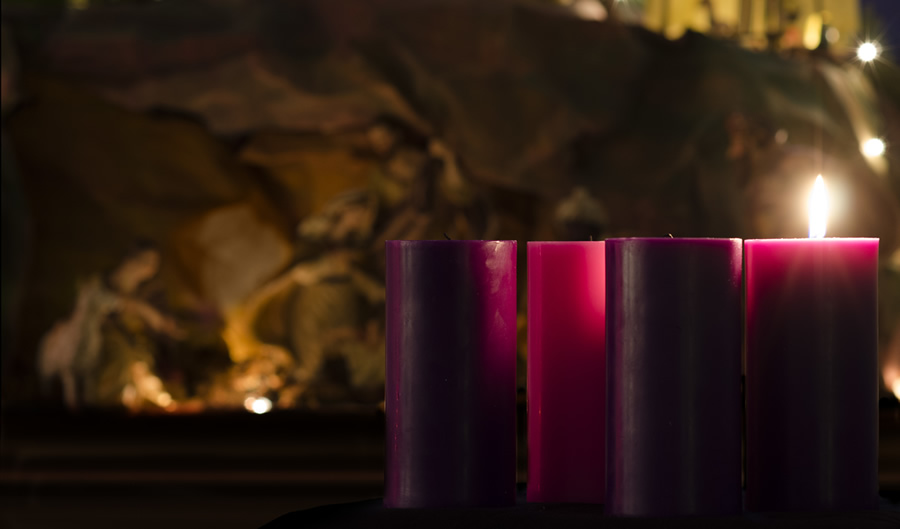
Strength in Weakness
by Tommy Shultz | 12/03/2023 | Gospel ReflectionHere we are at the beginning of one of the most beautiful liturgical seasons, the season that anticipates the word becoming flesh and dwelling among us. I don’t know about you, but it is typically at the start of a new season that I try to give my spiritual life a little boost. I typically try to settle on one or two things that I will do to draw closer to the Lord. Then inevitably, two or three days in I am reminded of my weakness and failures.
Continue
Christ Our King
by Tami Urcia | 11/26/2023 | Gospel ReflectionIt seems that only when our lives are turned upside down do we realize what is truly important. Only when what we deemed important is no longer there, do we understand that so many things are actually rather unimportant. So what IS important? While the answer may vary somewhat, a few things should not falter to us as Christians.
Continue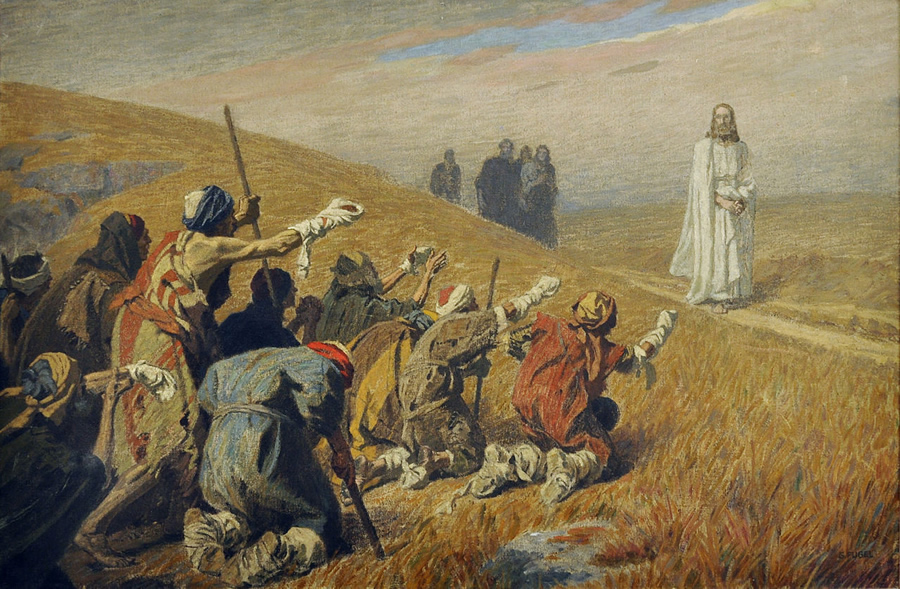
Thanksgiving
by Dakota Pesce | 11/19/2023 | Gospel ReflectionIn today’s Gospel, Luke recounts the story of the healing of the lepers. At the time of Christ, lepers were one of the most marginalized and isolated groups. In order to avoid spreading leprosy, which is highly contagious, they were not even allowed to live with their families. Those who had leprosy were without hope because their ailment could not be cured. Lepers were considered unclean and, therefore, sought purity. When they encounter Christ, they recognize Him as someone who can heal them and grant them purity. When Christ heals the ten lepers, He then tells them to show themselves to the priests so that they may be welcomed back into the community. However, only one of the ten comes back to offer praise and thanksgiving to Christ. And Christ’s response is, “Stand up and go; your faith has saved you.”
Continue
November: A Month to Reflect on Gratitude and Giving
by International Catholic Stewardship Council | 11/12/2023 | Gospel ReflectionTowards the end of each year, it is easy for us to become distracted with the busyness and planning for the upcoming holidays, starting with Thanksgiving. As Christian stewards, it is an important aspect of our faith to live each day in gratitude and to prayerfully discern and reflect on what we are giving back to God through our parish, diocese and other charitable institutions in the coming year. Now is a good time to reflect on what priority we will give to God in our spending.
Continue
A Message form Fr. George Teodoro...
by Fr. George Teodoro, S.J. | 11/05/2023 | From Fr. TeodoroDear friends,
Greetings from Bikfaya, Lebanon! Since arriving here in September, along with 11 other Jesuits from 8 other countries, we have begun our tertianship program here by studying the life of St. Ignatius and his first companions, while building community and seeing a bit of the country. Bikfaya is northeast of Beirut, in the mountains and in a traditionally Christian region. We have been able to see parts of the city of Beirut, along with Byblos, one of the oldest continually inhabited cities on earth, and the monastery of St. Charbel, where we celebrated Mass in his tomb. It has been an enlivening and enriching time of prayer, learning, and reflection.
Continue